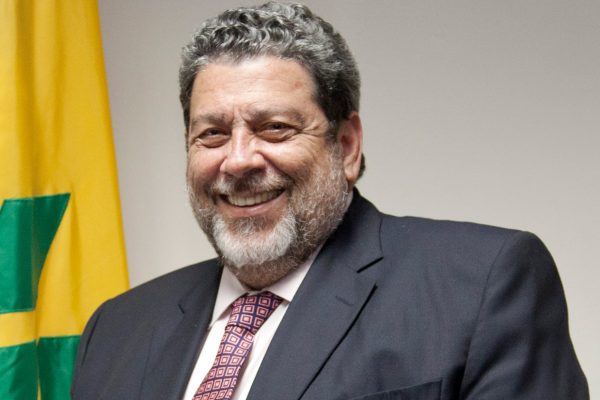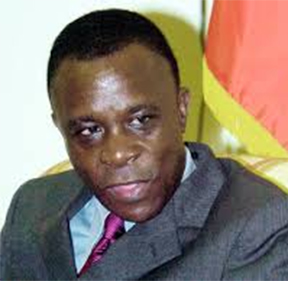 Recently, there have been a number of signs that indicate that the West Indies team’s tour of England scheduled for July will go ahead despite the coronavirus pandemic.
Recently, there have been a number of signs that indicate that the West Indies team’s tour of England scheduled for July will go ahead despite the coronavirus pandemic.
Apart from the fact that there have been several media reports which suggest that the tour is a distinct possibility, on Monday, the website of Cricket West Indies (CWI) stated that several Barbados players from the squad shortlisted by CWI, had resumed training on the island including test Skipper Jason Holder.
While a decision on the tour is expected to be made tomorrow when the CWI Directors meet via conference call, it seems a foregone conclusion that the tour will take place.

On Monday, a Caribbean Media Corporation (CMC) report quoted CWI’s Chief Executive Officer, (CEO) Johnny Grave, as stating that the England and Wales Cricket Board (ECB) has a “robust and safe plan” to ensure the tour comes off successfully.
Previously, test captain Jason Holder had been quoted in a Reuters news report as stating that he would not force his teammates to travel to England for the three-test tour.
Coach Phil Simmons, in another CMC report, spoke on the issue of player-fitness again giving rise to the belief that the tour will take place.
However, on whether the team should tour England or not, it is not Holder’s call, nor Simmons’ nor CWI’s.
The decision as to whether the tour should go ahead should rest with the regional governments/CARICOM and for obvious reasons.
governments have dropped the ball
Recently, the government of India was forced to remind the Board of Control for Cricket in India (BCCI) that the decision for the staging of the lucrative Indian Premier League was theirs to make.
The India government made it quite clear that it, and not the BCCI, has the authority to decide whether the competition could be played or not.
According to India’s sports minister, Kiren Rijiju, the government would make the decision based on how well the coronavirus was being contained.
Rijiju also stated that the tournament would go ahead only if there was no risk to public health.
“We can’t put health of the nation at risk just because we want sporting events to be held. Our focus is fighting COVID-19,” said Rijiju.
The IPL is an extremely lucrative tournament but India’s government is more concerned about the health of its citizens as opposed to the wealth of a few and rightly so.
Which brings us to Caribbean governments. Most third world governments sit idly by and allow sports associations to literally do as they please.
While the general belief is that sports associations are autonomous bodies and should be free from government interference, there are certain conditions where the government should and must act.
The upcoming England tour is one such and while the ECB needs the UK government to agree to the tour, it does not seem as if CWI needs the approval of regional governments for its citizens to travel to a jurisdiction which is one of the hotbeds of the coronavirus pandemic with so far approximately 260, 000 infections and nearly 37, 000 deaths.
Allowing its citizens to go into the eye of the storm can be seen as a dereliction of duty by regional governments despite the assurances of the ECB.
“We are expecting to get a formal offer to tour England probably by the end of the month so that we can get our board’s approval and the players can potentially leave the region [the Caribbean] in early June,” said Grave.
From that statement is does not seem as if CWI needs or will be seeking, the approval of the regional governments and if such is the case that is a shame but also an indictment as to the apparent lack of interest by some regional governments in the affairs of West Indies cricket.
To be fair, that criticism should not be directed at Prime Minsters Dr. Keith Mitchell, Ralph Gonsalves and Dr. Keith Rowley all of whom have shown tremendous interest in the administration of West Indies cricket in the past.
According to Grave, the West Indies players would leave the region by Private Charter June 8 and undergo two weeks of quarantine at a secure facility while preparing for the three test series which begins July 8.
“They would have been tested prior to departure, they are then on private charters within the Caribbean, then a private charter to the UK, and then they enter a bio secure bubble where other than them and the people looking after them – ground staff, catering and hotel staff – no-one else is allowed,” Grave explained.
“Everyone else in that secure bubble has been tested. So the likelihood of coming into contact with someone who is COVID-19 positive is very, very low.
“And it is on that basis, and because of the robustness of the bio secure environment and the plans that our medical people are saying to us it is a safe environment. So the chances of someone catching COVID-19 are very, very small.
“The players would be in a very, very secure [and] very, very isolated environment for the first two weeks in quarantine, and then when they move into the bio secure Test venues everyone that they come into contact [with] would be in a restricted bubble, therefore not able to leave, and all of them would have been tested prior to coming into that environment and would continue to undergo random testing whilst they are there.”
All of that is fine except for the fact that there has been no word from the regional governments as to whether they approve or not of the current tour.
In the coin toss to decide if the tour should go ahead or not, as was stated previously, it’s the government’s call.
Has regional governments/CARICOM received assurances from CWI or the ECB about the safety precautionary measures to be implemented for the tour?
That the representatives of the West Indies team should be afforded the highest safety measures possible for the tour to go ahead is a given.
This is where the late Forbes Burnham, love him or loathe him stood out.
Burnham, as president of Guyana, showed that as a leader he was not afraid to make tough decisions, decisions that he felt was right such as when he banned South Africa’s Robin Jackman over that country’s apartheid policy in 1981, showing solidarity for the 1977 Gleneagles Agreement, Commonwealth leaders had signed up for.
Today’s regional leaders prefer silence or fence sitting when it comes to addressing contentious issues.
ICC guidelines
The International Cricket Council recently issued guidelines for the safe resumption of cricket and should the tour go ahead it will be interesting to see how applicable some of the guidelines will be.
The appointment of Chief Medical Officers and a 14-day pre-match isolation training camp, are two of the recommendations and the ICC also suggested chartered flights and seat spacing to ensure physical distancing when teams are forced to travel.
The ICC also urged member territories to consider pre-match isolation training camps with health, temperature checks and coronavirus testing – e.g. at least 14 days prior to travel to ensure the team is Covid-19 free.
However, the more difficult guidelines which will come into effect should the tour take place will be the ones that advocate players and umpires maintain physical distancing on the cricket field.
Additionally, there will be no handing over of player items (cap, towels, sunglasses, jumpers) to the umpire or teammates.
“The ICC advises its Members to use these guidelines as the basis to create their own policies for return to cricket activity in compliance, in all cases, with local and national government regulations (which should always take precedence) and to ensure the cricket community applies the necessary safety measures when resuming cricket,” a press release from the governing body stated.
Given all of the above, the upcoming tour of England by the West Indies Test team, if it does take place will surely be a groundbreaking tour in more ways than one.








